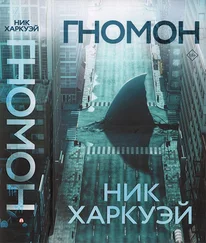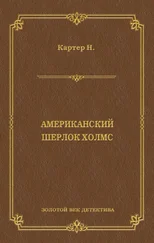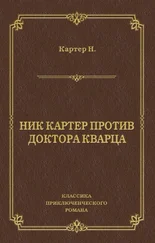“My husband’s watch. Or rather, it is my watch, but it was a gift from him. He had it from a man in Cambodia, you see, and now it is broken. I think it may also be wise to see to the strap. It becomes loose. Although that may be because I am shrinking.” And from this you might deduce that the lady client was elderly, and that English was her second language, learned in haste and never entirely polished.
From her bag, she withdrew a small parcel of bunched tissue paper, and this she placed in front of him, with some considerable misgiving.
“It is Asian,” he said, “and I think it is beautiful, but there is no hallmarking, so I do not really know that it is gold.”
Daniel Spork made haste to assure her that the craftsmen of Asia were capable of splendid things, though he worried that he would be forced, when the thing was revealed, to tell her that her husband’s impulsive purchase had been an error. Many travelling gentlemen, lulled perhaps by a sense of north-western superiority, are gently gulled of large sums by enterprising persons in the streets and shops of Asian cities, and deserved in Daniel Spork’s opinion no less for their hubris. He did not extend this judgement to their families, however, and did not relish telling little old ladies with treasured gifts that they were not gold and emeralds but leaf and glass.
He glanced at her, and when she nodded, picked it open with long, unsteady fingers.
The timepiece itself was unexceptional; well made and simple, the face a thin wafer of polished ebony in a gold oval, with a flat glass cover. It was the bracelet which arrested Daniel’s attention, which clenched about his heart and stopped his breath in his throat. He had, until now, never seen its like. Rumours had reached him, and he had dismissed them. Now he held the thing in his hands, and knew it to be almost as far beyond him as it was beyond this nice, unknowing old dame who had brought it in. The difference was that after a lifetime of gears and movements, of gold and lamé and carats and weights, he knew when he was surpassed, when he was in the presence of a master’s work. He passed it back to her, very gently.
“Your husband is—is?”
“Was.”
“I’m sorry.”
“It was long ago.”
“He was a very wise man, madame. And this thing you have brought me, which he found for you, it is a thing for which a lesser man might search a lifetime. You must treasure it.”
“I do.”
“So, good. And if ever you should meet anyone who can repair such a thing—who understands how this is done—please say to them that you know a man in Quoyle Street in London who dares not ask if they will tell him the secret, but would count it more than a privilege to drink a cup of tea with them and know that someone, somewhere, retains the trick of this, and will make sure it is never lost.” He sniffed.
“I have made you sad.”
“No, madame. You have made me more than happy. I can fix the mechanism for you, but I will not touch the strap. I would not know where to begin. Come back when I am old. Perhaps I will learn.”
Woven Gold. And that is not the most remarkable thing about the doodah. Joe Spork saw what was inside it for the first time twenty minutes ago. He has no idea what it does.
First, there is the matter of the lock. It is, in fact, five locks, each one tiny and rotated by a different section of the whojimmy, each one unlocking the next one, until the last twist releases a clasp and allows the whole to open. These locks are distributed around the interior of the ball in a strange cage-like architecture which reminds Joe distantly of the aviary at London Zoo. Disconnected from one another, they flip back like the wing-cases of a glorious beetle, clasped loosely around the ball’s clockwork heart. That, by itself, is enough to attract his most alert scrutiny. It is good work, and that modest assessment is in the trade tongue, the dour speech of craftsmen looking at their own: Not bad, your Taj Mahal, old son. Bit bald about the edges, mind . And, Oh aye , replies the master builder, it’s all right. You don’t think the water feature’s a bit loud? Wish I’d had time to build t’other one in black, that would have been something… Still, it’s nothing to be ashamed of, I suppose. You can’t get everything right .
That kind of good work.
Rare work.
Brilliant work.
White-gloved and with a pair of softwood tweezers (better they should break than this object should be scratched) he examines it again, unfolds the locking mechanism—not without a slightly filthy feeling that he’s undressing a sleeping princess—and examines the mechanism within under his thick, jeweller’s lens.
The largest cog is perhaps two-eighths of an inch across. The smallest is so tiny that Joe has no idea how it could have been made, except that he knows exactly: someone made a special tool, a thing which mimics the gestures of a normal-size tool on a far smaller scale. Write your name normally on the left, and it is scratched into the panel on the right small enough to fit on a grain of rice. Half a grain. And then—this is the part which boggles his mind—each individual piece, each spring and cog and counter, was made by hand and fitted together. It is a rippling, shifting landscape of interlocking gets and pins, tracks and catches.
The envisioning of this apparatus, the planning, without a computer or even a photocopier, must have taken a year in itself. If a normal piece of clockwork is a person, this thing is a great city. It is folded on itself, each section fulfilling several roles, turning in one axis, then another, then another. There is, just here, a yet smaller case which performs some outré function he cannot fathom, but which itself is also the weight driving some manner of self-winding system. The cog which is the output stream, which pokes through the ball at the north pole and meets whatever remarkable thing is driven by this tiny engine (although it’s not an engine, of course, it’s something far more strange and powerful: a storage medium, a computer’s hard disk made of brass), is actually just a dust cover. When the thing is active it slides to one side to reveal a plug of gears so complex that Joe Spork has come to call it in his mind by a modern name. He calls it an interface .
Enigma, he wonders. Colossus? Is this a wartime thing? A code-breaker or a code-maker? He has no idea. He knows only that it is unrecorded, magical, genius. Hence: priceless.
And yes, there is a small flaw, but hardly a surprising one after decades in a sack somewhere. He reaches in—and stops. A tiny sparkle beneath his tweezers.
Impossible.
Joe peers, leaning down, adjusts the lamp. Then he brings two more lights closer, and a hand lens which in combination with the main one gives him a truly ludicrous magnification.
Absolutely impossible.
Beside the smallest cog, driven by a secondary ratchet on the face of the tiny thing, there is a glimmer of metal. Through the double lens he peers, and yes, there it is, appearing to hang in space: another layer of clockwork so small that it’s barely visible even now, a tracery of gossamer meshed and geared and fading away into the interior of the ball.
He stares at it, awestruck and even a little upset. He can do nothing with this. He would need other tools, a cleanroom, practice in micro-gauge engineering… he is utterly outclassed.
Except…
Except.
If there’s damage to the microscopic part, he’s out of his depth. There’s probably no one on Earth who has experience with this. It is unique—and mad, because if you can make this, why wouldn’t you use printed circuitry? Unless, of course, there was no such thing when you made it.
That aside: the macro part is familiar enough. And yes, the central section lifts out as a single piece. This problem was foreseen (of course).
Читать дальше
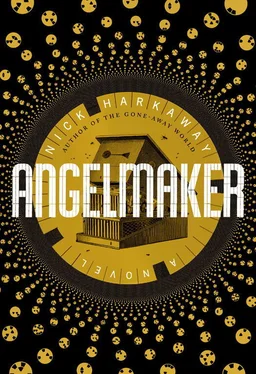
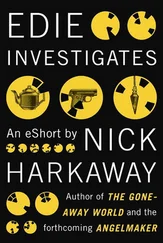



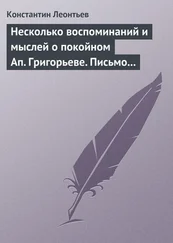

![Ник Харкуэй - Гномон [litres]](/books/400023/nik-harkuej-gnomon-litres-thumb.webp)
